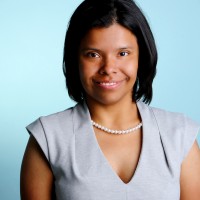
AnaLori Smith
M.A. Candidate
| Degrees: | B.A. Hons. (Carleton University) |
AnaLori Smith, an Ottawa native, completed her B.A. Honours degree at Carleton in Women’s and Gender Studies before deciding to further pursue the discipline by taking a Master’s degree. She especially “loved the interdisciplinary aspect of Women’s and Gender Studies, she says, and she continues, “The M.A. program gave me the opportunity to focus on disability and gender and to look at the two topics intersectionally. I really enjoy that aspect of the program—the ability to take things from various disciplines and combine them into research.”
In her free time, AnaLori enjoys listening to music, spending time with friends, and frequenting coffee shops. Her academic commitments do, however, keep her very busy as she is also a TA for the course on Body’s Matter: Politics of the Body.
AnaLori explains that Carleton remained her number one choice for a Master’s degree because of its accessibility: “I find that Carleton is a very good school in terms of its academic accommodations and other issues of accessibility. I know that the Institute gave me extra time to complete my Master’s Program in Women’s and Gender Studies—they gave me a program extension which is incredible—so instead of two, I have three years to complete the program. This has actually enabled me to flourish in the program. I have also received accommodation to do my teaching assistantship. Sometimes I have a reduced number of students, so it definitely makes it easier for me to participate in graduate life and essentially to do very well. Carleton is a really great environment in its structure. It’s wonderful that it’s all on one campus and it’s easy to navigate—especially with the tunnels!”
AnaLori made the decision to write a Master’s Research Paper as her final project. Her focus is on “women living with physical disabilities, and the personal, interpersonal and institutional relations that shape the experiences of persons with disabilities in graduate programs—specifically, females with disabilities.” Analori finds that the literature on disability studies is incredible, but in some ways the focus does move away from the gender aspect. In fact, the literature on disability studies “almost distances the gender lenses,” she says, “so I defiantly want to put gender back into focus!”
AnaLori hopes to eventually find a job in a college or university and “to advocate for the inclusion of persons with varying abilities in higher education and to see how we can strengthen that relationship between people with disabilities and academia.”
Analori expresses that her fondest memories from her time at Carleton stem from the Women’s and Gender Studies faculty: “They are one of the main reasons I chose to do my Master’s at Carleton. The Pauline Jewett Institute of Women’s and Gender Studies is a strong Institute with very supportive faculty members. Also, I really love my cohort. There were eight of us who came in last year, and no one was competitive. We really wanted to support each other, and that was especially important because we were transitioning from undergraduate to graduate life. It’s definitely a good department to be a part of, and I am proud to be a part of it!”